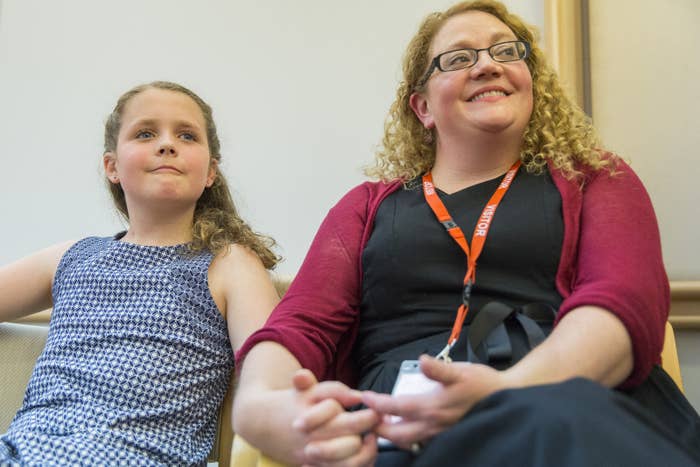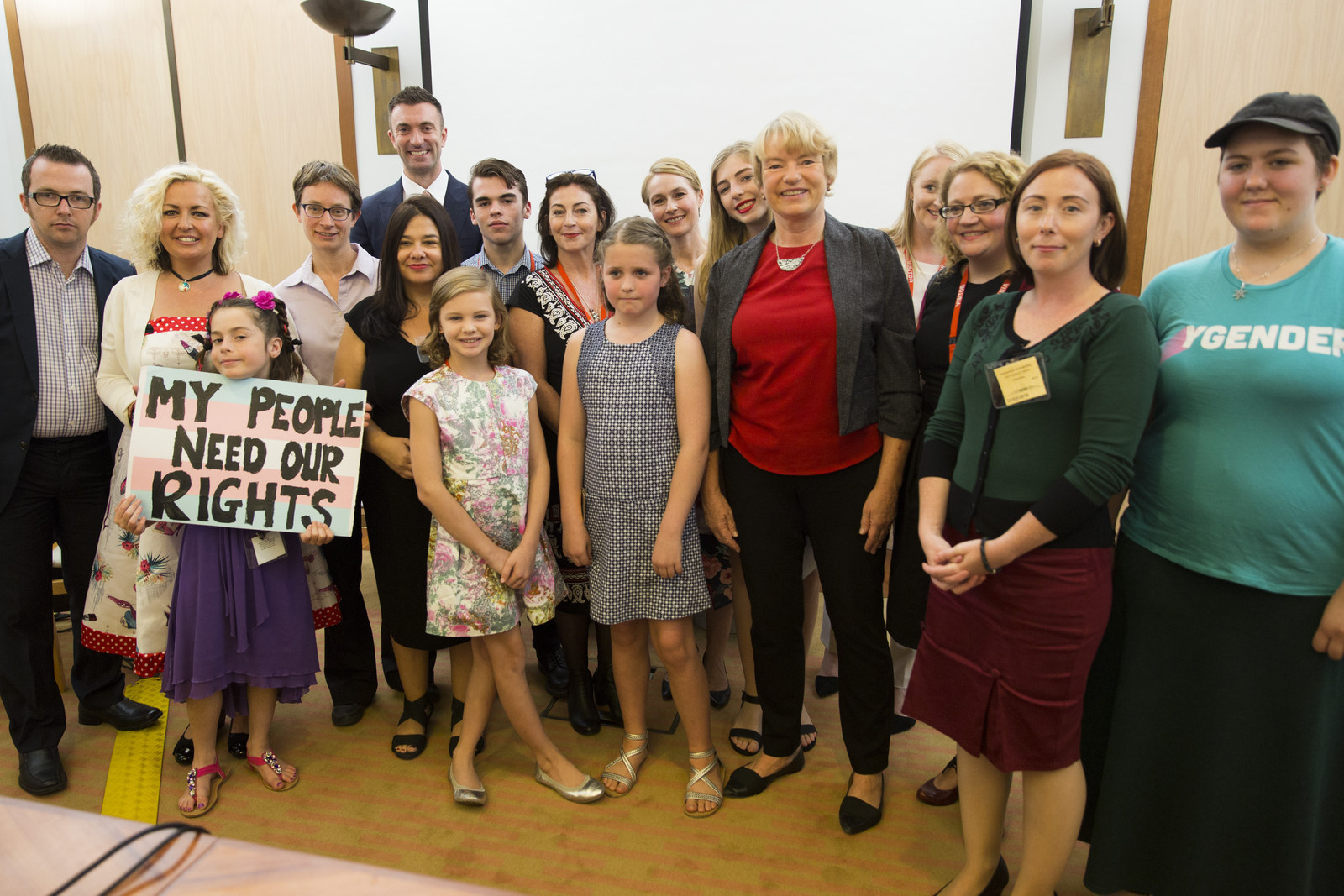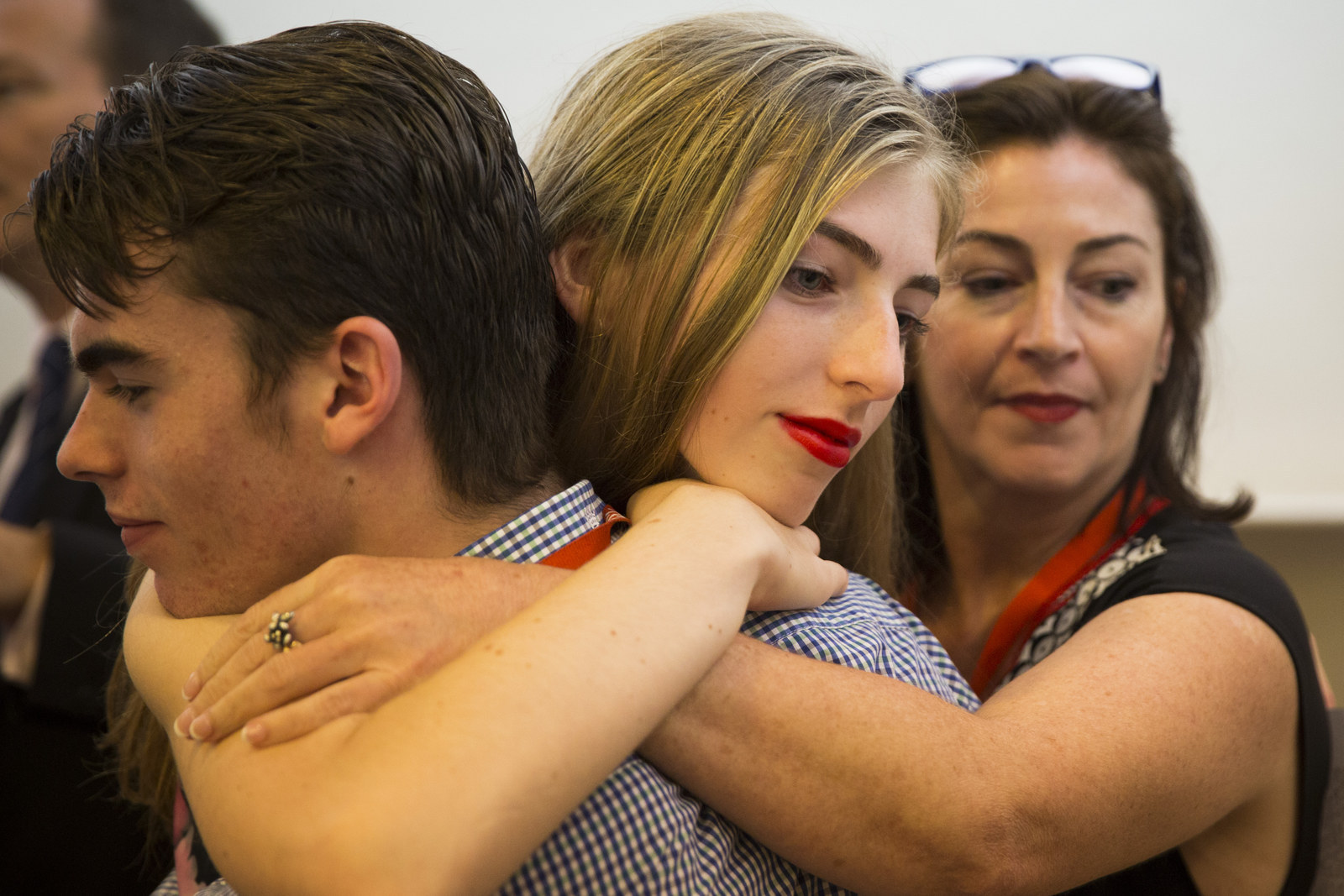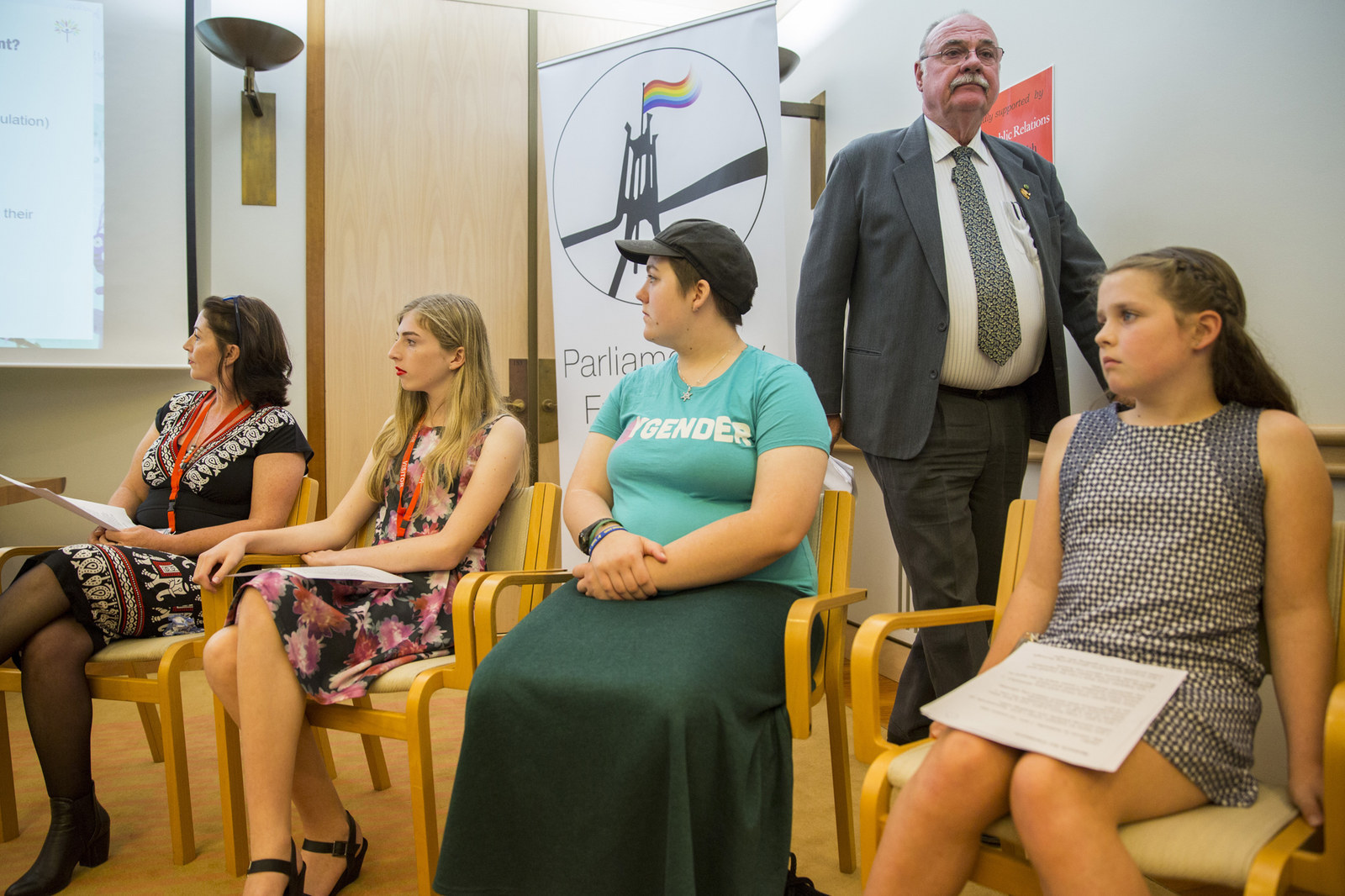For 12-year-old Isabelle, every day brings "so many reminders" of the ways in which she is different.

Isabelle is transgender, and describes herself as "cursed with some physical characteristics" that mean her body doesn't match her identity as a girl. Her childhood has not been an easy journey.
"I have tried to hurt myself, and questioned whether I want to be here in my darkest times," she said.
Once she is old enough, Isabelle wants to take cross-sex hormones, also known as stage two treatment, which will allow her to go through puberty and develop as a girl. But her life is laced with fear and worry, as she knows in order to access this treatment, she has to go to court and get approval.
"I don't just want to access stage two treatment," she said. "I need to."
On Monday, Isabelle and many other transgender children came to Parliament House in Canberra with one message for MPs: please make it easier for us to get the treatment we need.

It's the first time these children, their families, and medical experts have come together in a concerted lobbying effort to remove the role played by the Family Court when it comes to accessing stage two treatment.
Australia is the only country in the world where transgender children must get court approval to start hormone treatment.
This delay places enormous stress on transgender children, who face alarmingly high rates of self-harm and suicide if they cannot access treatment.
At the event run by the Parliamentary Friends of LGBTI Australians, 15-year-old Georgie Stone said having to go to court made her feel “lost and hopeless”.
“I had to go to court to be who I already am,” she said. “Only I have the right to determine what goes into my body.”
However, caught in a lengthy court process, Georgie had to wait – and she became increasingly anxious and withdrawn as she worried about her voice breaking.
“The court process is slow, biology is fast,” Georgie’s mother Rebekah Robertson said.

“As parents, we walk ahead of our child like a landmine detector, clearing the path before them.”
Robertson described the pressure on young transgender people and their families as “enormous and relentless”.
“To add court to this is unnecessary and cruel.”
Typically, the medical treatment a transgender child receives is looked at in two different "stages".
The first is “puberty blockers”, a reversible treatment started at the onset of puberty that effectively suspends the child’s body in time, preventing them from developing secondary sex characteristics such as a broken voice or breasts.
In 2013, Georgie and her family won an appeal that sealed the right for transgender children to access stage one treatment without having to go to court.
However, the court ruled that for stage two treatment – taking cross-sex hormones that will develop their body into the gender they identify as – people aged under 18 still needed court approval.
This court process can cost between $10,000 and $30,000 and take 8-12 months to reach an outcome. Judges rely entirely on the medical testimony from doctors, and no child has ever been denied treatment.
Medical and legal experts say the delay and cost of the court process puts enormous stress on a vulnerable population.

Dr Michelle Telfer, a pediatrician at the Gender Service at the Royal Children’s Hospital in Melbourne, said that of transgender kids who cannot access treatment, 50% self-harm and 30% attempt suicide.
She said access to medical treatment significantly alleviates the anxiety, depression and suicidal thoughts transgender children feel over developing a body that isn't right for them.
Fiona Kelly, an associate professor at LaTrobe University who has done extensive research into the issue, described the court process as “a very harmful, lengthy and expensive rubber stamp”.
Telfer, Kelly and the transgender children visited MPs and senators personally on Monday, as well as speaking to a group at the parliamentary friends event.
Greens Senator Janet Rice said she was optimistic about the prospect for change.
Rice's fellow co-chairs of the Parliamentary Friends of LGBTI Australians, Liberal MP Warren Entsch and Labor MP Graham Perrett, are "strong advocates" of the change.
"We've heard the attorney general George Brandis's office is very engaged with the issue," she said.
"It's not vastly complicated legislation, and with cross party support, we should be able to get it through the parliament."
If you need to talk to someone, you can call Lifeline Australia on 13 11 14 or Beyond Blue Australia on 1300 22 4636. Anxiety UK on 08444 775 774, or Hopeline America on 1-800-784-2433.
